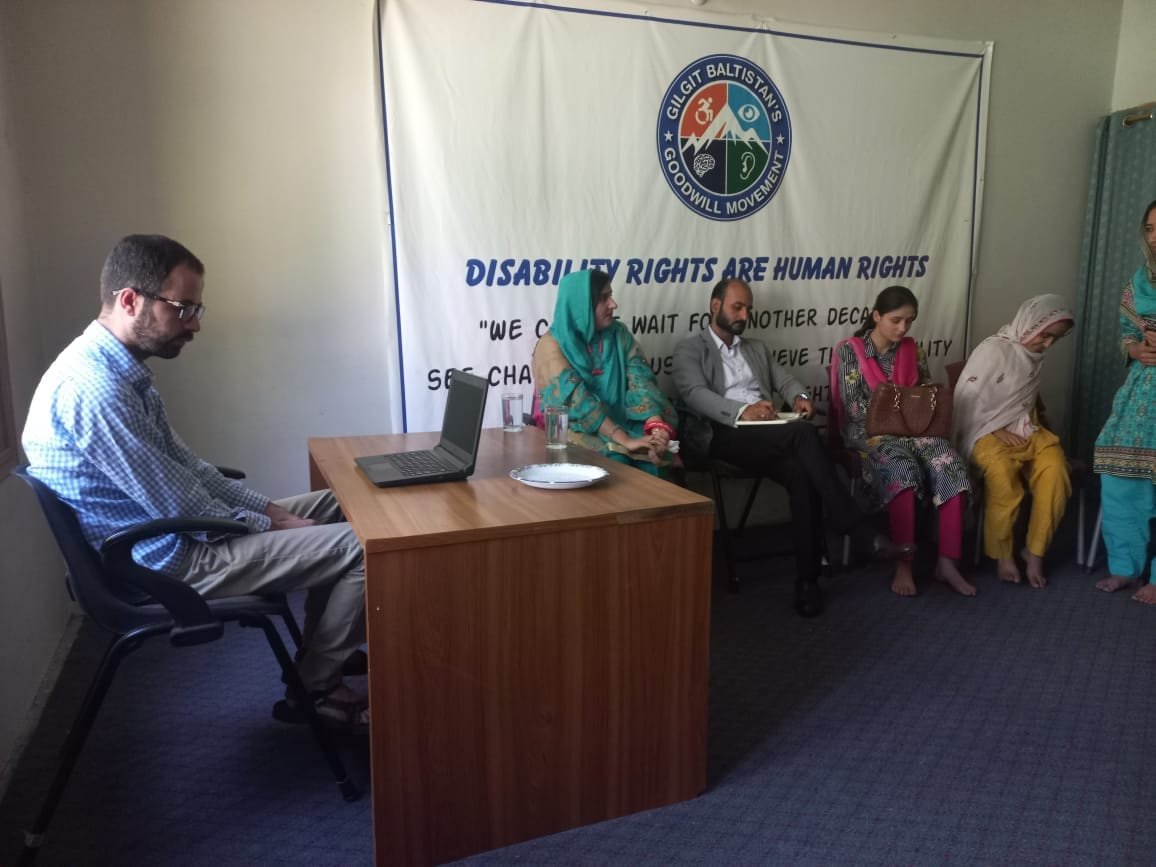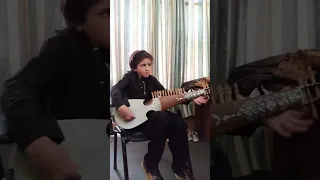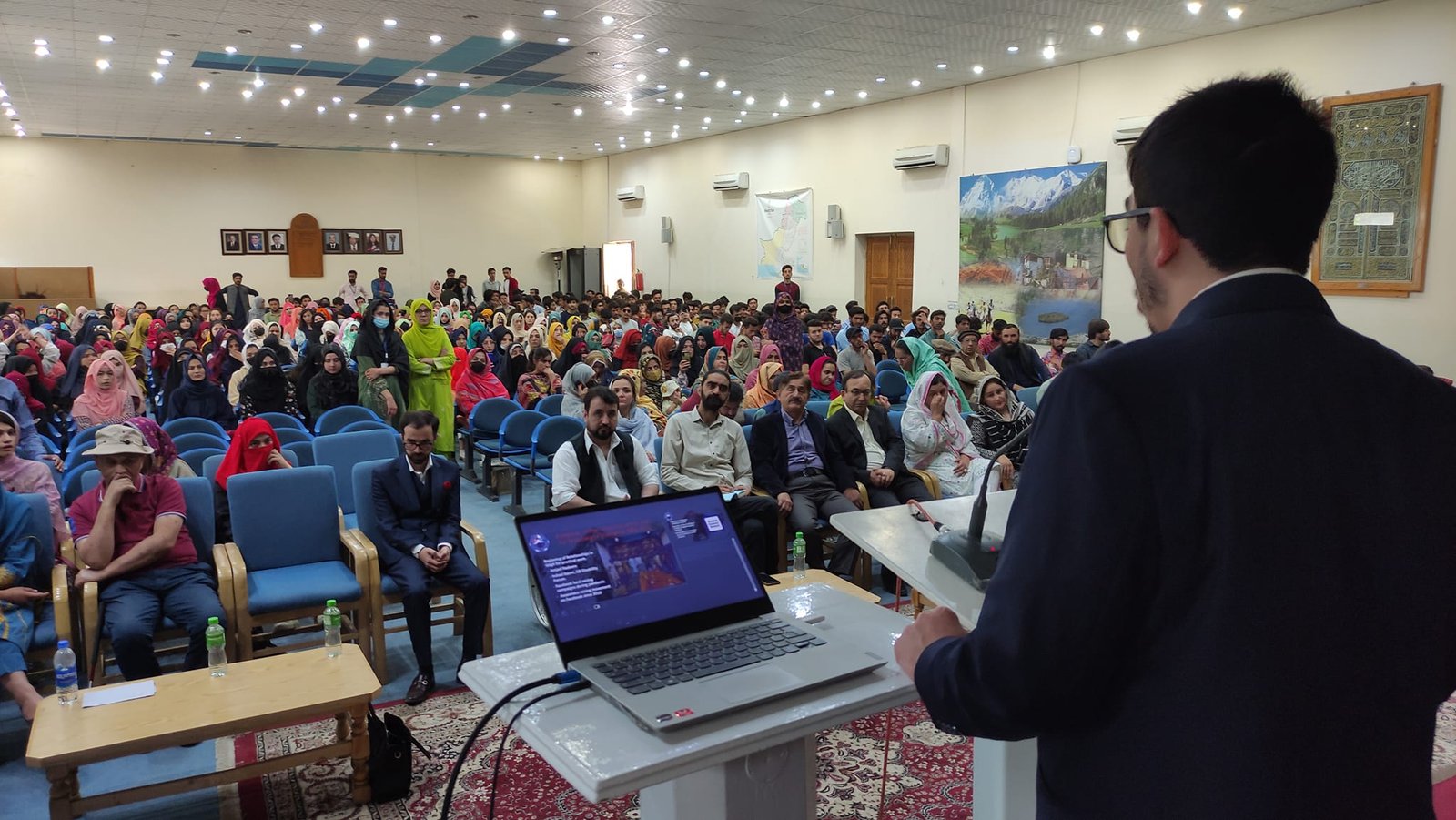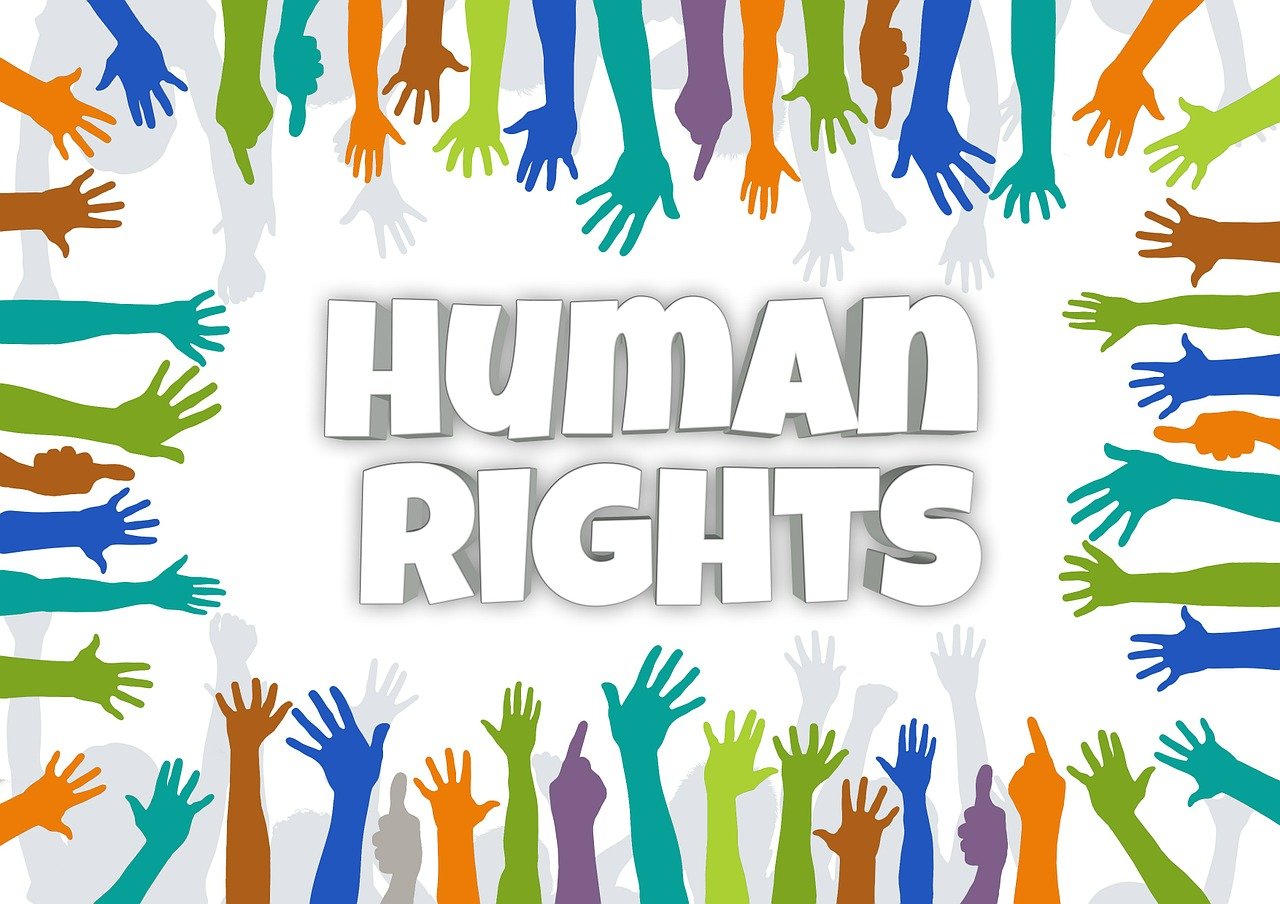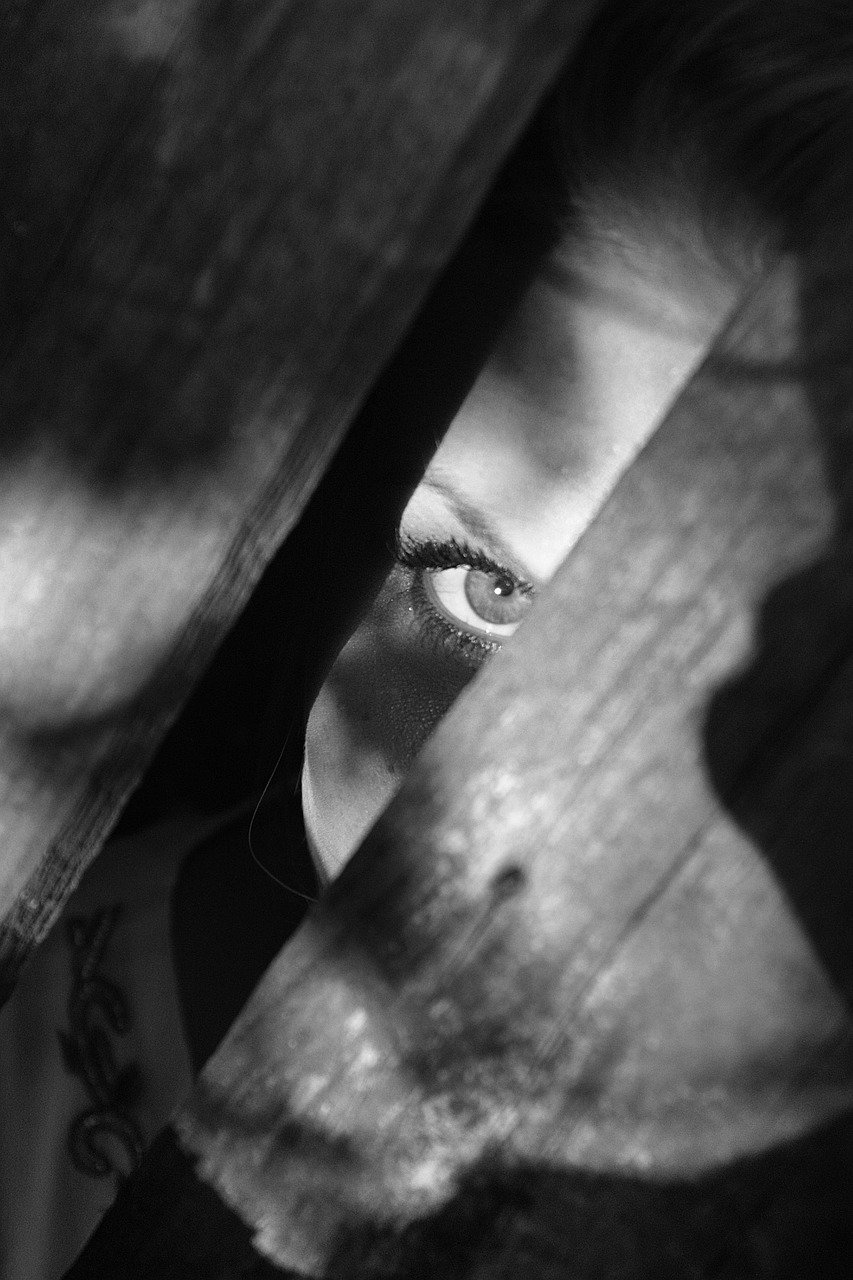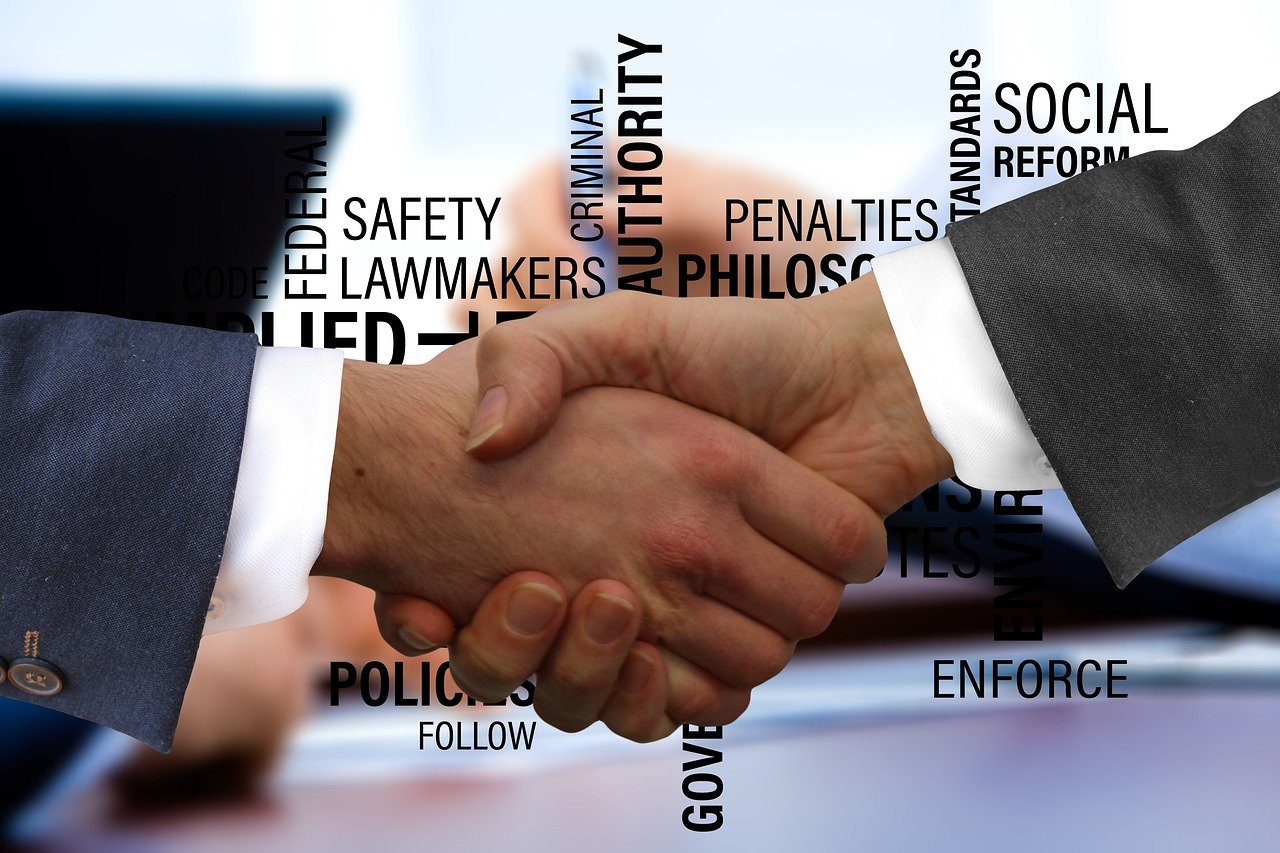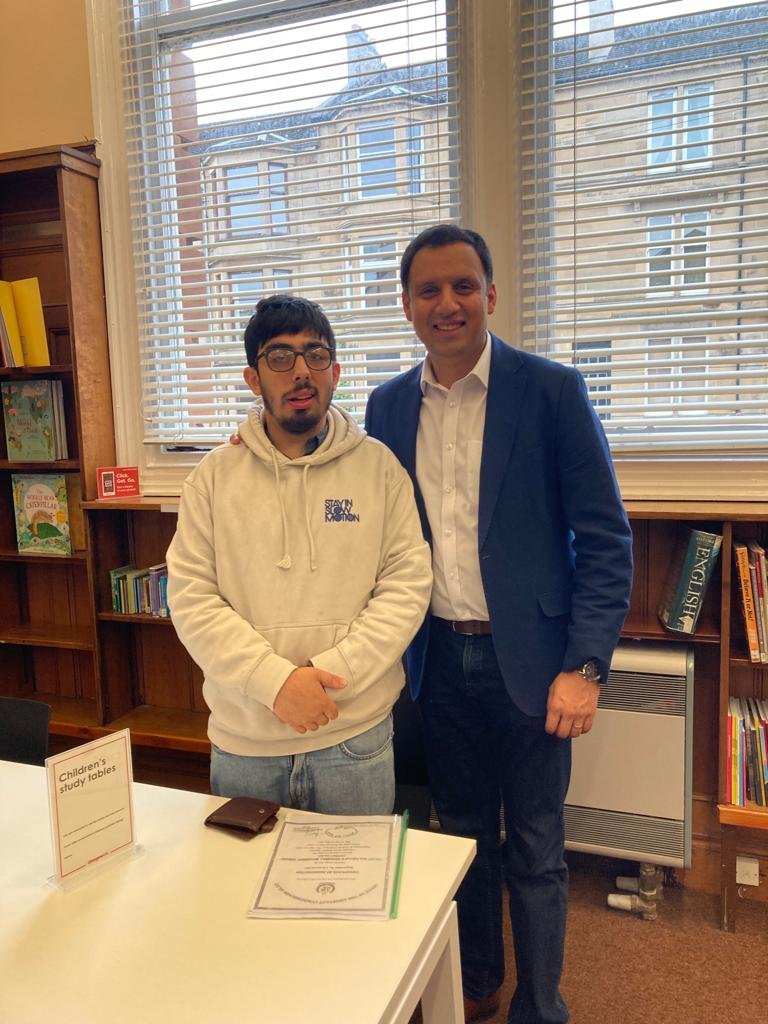Tag: gilgit baltistan
Lessons from AKDN – How can we learn lessons to further disablity development?
Belated Salgirah Mubarak to all the Ismaili community members around the world! Many will celebrate the Aga Khan’s work, which Ismailies call their Hazir Imam. While GB Goodwill Movement does an interfaith community-based job within the Gilgit Baltistan region: if one were to talk of successful projects in GB, one would need to mention the Aga Khan’s Work within the area, from schools to local hospitals within GB. AKDN’s works play a significant part in the lives of the citizens of Gilgit Baltistan, specifically Hunzais. Nevertheless, as organizations, what are the lessons that can be taken from AKDN?
Embracing Diversity and Inclusiveness
One of His Highness’ quotes is, ‘ We can not make the world safe for democracy until we also make the world safe for diversity. ‘ At Goodwill, we are just advocating for the rights of persons with disabilities. Period. We do not expect to have special rights: but the inalienable rights are given to each man and woman (quoted from the US Constitution, 1789). PWDs should be able to work and contribute to society regardless of gender, religion, or sexuality.
The thing is, though: there is a moral Panic
Moral Panic – Not needed
A moral panic is a situation where the media hypes a scenario, and citizens assume that the media shows the truth, and that is it. We know in the case of Pakistan, specifically on the issues, Persons with Disablities are shown to be the lowest of the lowest class, where this is no intellect and PWDs are poor. In the Gilgit Baltistan context, many individuals, including those featured here on the Stories of the Resilient https://gbgoodwillmovement.com/blog/, have achieved masters and degrees but are not employed due to a lack of awareness in society, and due to this so-called Moral Panic.
Another example would be that of Gilgit Baltistan Disabled Scholar Fazal Amin Beg, who, despite his disability, has the intellect but could not go on to further education https://fazalamin.com/biography/ due to societal pressures around PWDs in Pakistanhttps://pamirtimes.net/2019/01/02/renowned-researcher-fazal-amin-baig-launches-website-to-make-his-work-available-online/.
Calling for support for Persons with Disablities
Like AKDN, local disabled organizations need the support of people. In another quote by His Highness, he said, ‘We must explore every opportunity to have different faiths come together in addressing the problems of our respective societies.’ Societies must come together to solve issues for Persons with Disablities. No matter whether you live in Karachi, London, or Sydney, the individual has a responsibility towards all communities and societies.
Join us in supporting our mission.
Stories of the resilient – Ghulam Muhammad Baig
If we can not compete within the circle, why bother competing? Why should one get an opportunity if one can not strive to work hard? Something like that is similar to my story.
My name is Ghulam Muhammad Baig. Currently, I live in Glasgow, Scotland, with my family. Initially, I am from Hunza, Gilgit Baltistan. I am going into my final year at the University of Strathclyde Glasgow, hopefully graduating with a BA Honours Major in Politics and a Minor in History. I started my education in Pakistan and then moved with my family to Glasgow, Scotland, UK, at age seven in 2006.
Living in a Pakistani family setting with a disability is different than other cultures. Though even in Pakistan, we were living in a privileged household, with my father being an army doctor in the Pakistan armed forces: the lack of awareness within South Asian Households and especially within the military, as it deals with minor and significant injuries was quite surprising. Yes, you do have to realize that it is a part of society, but the fact that many men were injured in wars, you would expect some greater awareness within the military establishment. However, moving on, I went to Sesame school in Abbottabad, and then later on, when we moved to Rawalpindi, I attended the Umeed E Noor School in Islamabad, which the Hashoo Foundation, now a close ally of this organization (https://gbgoodwillmovement.com). Though not fully aware but by then, I had started being aware that I have got some disabilities in the form of difficulties in speaking, eating, walking, handwriting, and doing things with my hands.
Then when I came to the UK, I started to attend a special needs school called Kelbourne Primary, where I studied there for five years. Those five years were really important in improving my language and communication skills. The support I got there in the form of education, speech therapy, hydrotherapy, physiotherapy, and occupational therapy transformed some of my disabilities into abilities. After completing primary school, I went to a special needs secondary school named Ashcraig Secondary School where I spent six years. The years at Ashcraig were more challenging, mentally and physically. This school had students from different cultural backgrounds, and I had real difficulties coping with my peers. However, I learned from errors and mistakes and gained confidence by the sixth year, to the extent that I was able to speak on any issue in front of the whole school, and many of my teachers were happy with me. After acquiring the necessary qualifications set by the Scottish Qualifications Authority (SQA), I was able to be enrolled in the social sciences course at the City Of Glasgow College where I graduated in 2021. I am interested in the social sciences because I want to investigate how society functions, what are the different attitudes within society, and what are the different hurdles/barriers in society
How did Goodwill Movement Begin?
During the time of the Coronavirus Pandemic, when we were all locked at home and had nothing else to do apart from watching TV and using social media, it was the time I decided that I should help and campaign for the disabled community of Gilgit Baltistan in whatever capacity I can and this is where the idea of creating the Goodwill movement came from.
When I look at the experiences of disabled persons in Pakistan and compare it to the UK, here, society treats its disabled community equally. As a disabled student studying at the City of Glasgow College, I can say that the disability issue in Gilgit Baltistan has remained a long-term neglected issue.
Initially, I did primary research on the disability issue in Gilgit Baltistan by contacting two well-renowned disabled rights activists, Irshad Kazmi and Amjad Nadeem who provided me with an insight into the disabled community of Gilgit Baltistan.
According to them, the government of Gilgit Baltistan has attempted to address this issue by involving Nadeem and Kazmi in the decision-making process, but we collectively feel that the issues faced by the disabled community cannot be solved solely by the government. I even supported Nadeem’s work and projects by creating a local volunteer team and funding them for their projects via Facebook fundraisers.
Where does Goodwill Now stand
Though the idea of fundraisers is very effective, I and a few other activists https://gbgoodwillmovement.com/about-us/ established the Goodwill Movement so that at the same time as persons with disabilities are receiving aid in terms of food, water, medicines, and shelter, PWDs can receive free training and more importantly it is the first IT centre for Adult PWDs, so that Persons with Disablities could gain the opportunities just like the opportunities that I gained in the UK.
To read more on it, please visit https://gbgoodwillmovement.com and to keep supporting our projects please visit https://gbgoodwillmovement.com/donate-us/.
Donation policies can be found here : https://gbgoodwillmovement.com/which-actors-play-a-role-in-inclusive-policymaking/
Thank You!
Human Rights for Disabled People
This is a more formal article addressing disability rights activists around the globe.
We are reporting today about the situation of Persons with Disablities in Gilgit Baltistan. Like many other mountainous regions, Gilgit Baltistan is home to the K2 and other peaks, including Rakhaposhi, Nanga Parbat, and other mountains, including the Golden Peak. Like other populations, Gilgit Baltistan has a disabled population that has been marginalized in society at a large scale.
Early Childhood Stage
As soon as a disabled person is born into a family in Pakistan, the typical actions towards them change once a ‘special person’ is identified. This person, regardless of if they face a severe disability or not, is often socially excluded from society, meaning the majority does not consider their feelings.
Childhood to Adulthood
Once a disabled person is of school age, they might attend school due to parental influence and university at a push. Still, most students do not get further opportunities in FE or the employment sector. The only schools for disabled persons, commonly known as ‘special persons or differently-abled persons,’ are found in the cities, widely referred to as district capitals.
Consequences and further implications
This then leads to Persons with Disablities suffering from
• Unequal educational opportunities
• Severe unemployment
• Severe poverty
• Poor social integration
• Multiple health issues, leading a disabled adult to be ignored by society.
Why GBGM?
As a result, many disabled activists, including myself have taken the initiative under the Gilgit Baltistan’s Goodwill Movement (GBGM), a nonprofit organization that has been working for the improvement of people with disabilities in the Gilgit Baltistan region of Pakistan for the last three years, https://gbgoodwillmovement.com/about-us/. But this nonprofit organisation faces challenges as a result of a lack of governmental support and a lack of financial support https://gbgoodwillmovement.com/the-recent-passage-of-the-budget-by-the-gilgit-baltistans-government/
Do feel free to browse and contact us for other further information, but this is a human rights issue that should be addressed and raised at the national and international levels.
What causes fear to spread – social Contagion for Persons with Disablities?
We, as disabled people, identify that there is a social contagion for Persons with Disablities in Gilgit Baltistan, but what are the barriers?
Anecdotal evidence
One of the things that persons with disablities feel in all parts of the world is that someone presents anecdotal evidence that might be true to their scenario but not to anyone else’s. For instance, Ali has learning difficulties; all learning difficulties have disablities; therefore, disabled people have learning difficulties. This is not a truth. In fact, this is called a false syllogism in the school of philosophy.
In our region, mainly growing up with Hunzai Grandmothers, ‘they ‘ share stories of disabled people who might have mental health difficulties, but this is not to say they were wrong; this is to say that they might not have accessed the proper facilities or no facilities were available at that time.
Childhood memories shape your present opinions.
Because multiple millennials and older people did not socialize with the disabled populous, that’s why in Gilgit Baltistan, you see a generation of elderly persons or older adults not being able to communicate with a disabled person and vice versa, which contributes more towards a higher frequency of intellectual disablities within Gilgit Baltistan.
Please don’t assume that it is our fault.
But then, people, ‘ government officials, ‘can not be blamed because no one has tried to engage these people together within a society when you have seventy-five generations not being taught how to socialize with disabled people: the problems for PWDs arise.
Disabled rights are Human rights
Please do not judge me when I claim that despite the political upheaval, ableists are abusing the human rights of Disabled people, not knowing it is their fault. International organizations such as Amnesty International must stand up for disabled rights in Pakistan as the ableist class is just treating disabled people like how feudal lords would treat their serfs in Europe..
Together we need to eradicate this fear factor from Gilgit Baltistan society.
Morality and Governance – How PWDS are respected – Why is this? Fear?
My earlier articles have outlined the basic steps toward ethical governance. However, what ethics is can be debated. The world that we live in is of social media trends versus reality. In other words, while reading this, you may also listen to an Andrew Tate video, an Ali Zafar song, or a podcast. But we have lost this unique touch of fighting for a cause. If you were like me, who grew up in the mid-2000s, you knew what equality was. For example, speaking up against animal rights or the Arab Spring – A Political Social media revolution. However, if I look at the trends of today: it is not fighting about. How would it matter to me if a social media influencer makes 1000 + videos with 550 million subscribers?
As a society, we have no sense of community like we used to. So why am I talking about this? Like the food chain, Persons with Disablities are the marginalized of the marginalized. That’s a fact. If no one is affected, no one has to do anything about it. Right. Wrong! This is misleading and puts us on a dangerous road ahead for PWDs.
Family and Freinds
We should discuss morality because I think it starts from the home. As sociologist Talcott Parsons says, ‘ The nuclear family fits the more complex industrial society better. ‘ Most families, even though they might have different complexities are nuclear families. For 80% to 90% of families, I can say that discussing disability is more like discussing the elephant in the room. It is uncomfortable, but it does not have to be.
In an earlier article by Fatima, we read how a disabled person like Mumtaz yearned for people to listen to his story and as well as feeling sympathy for him, feeling like to bring a positive change in society https://gbgoodwillmovement.com/stories-of-the-resilient-mumtaz-ali/. Many family members and friends support Mumtaz’s story, and others like him – a good support network. Otherwise, in Pakistan, a good support network is hard to find. Even if it is, they might mock you or backbite about you.
Whereas in the UK, it is the same but more sugarcoated or sometimes may be blunter about it, but I feel your friends and family are the ones that guide you or should guide you in your life. But why is there a need? Why? When one can compete with you, intellectually or otherwise, why is there a need to have this charity model of thinking as Fatima or Mumtaz described it then?
Fear
I think a central part of this is fear in the context of Pakistan and elsewhere: especially in Gilgit Baltistan, where I believe the culture, if not identical, is very similar to a pan-European culture where there was a similar moral panic in the 1980s when the AIDS crises hit Europe, more specifically Britain. I am not comparing AIDS to disability in the slightest way, but after all, it is a medically termed chronic disease. Fearmongering can be of different volumes – indirect or direct. A 2014 report entitled the difficulties of PWDs in Gilgit Baltistan highlights issues of PWDs, mainly highlighting the lack of awareness within the region https://www.slideshare.net/AleenaKhan11/situationanalysisofpwdingilgitbaltistan2014, and I think fear is the X variable while Y is disability development. There might be a correlation, but it is affected by family relationships and in effect it is a social disease within itself that we need to question.
Moral actions are just as important as ethical governance, and this will affect governance, but it is how we deal with this fear in our families and societies about disability that is a challenge.
Which actors play a role in Inclusive PolicyMaking?
Now that we have defined what ethical governance should look like, I want to refocus on which actors, both state and nonstate, can play a part in inclusive policymaking for PWDs.
Donor Agencies
Gilgit Baltistan is a very remote region of Pakistan; some would even argue that it is smaller than Chitral as this is associated with KPK province and the government of Pakhtunkhwa. Nevertheless, GB has established institutions such as the Aga Khan Programmes under AKDN that could work on this issue, but due to a lack of resources and inclusive representation within AKDN, it can not achieve all its aims for the local communities.
Similarly, other local organizations work within their remit but can’t due to a lack of funding, and I would say for all organizations, including the GBGM, Government funding should be the top priority. As I said in an earlier article, all local (international disabled organizations) receive allotted funding from regular bodies. I used the example of the Glasgow Disablity Alliance,https://gbgoodwillmovement.com/growth-and-stability-for-persons-with-disabilities/, which highlights that GDA gets funding from the EHR commission, The community fund, and the Bank of Scotland: which are local governmental and private entities: should the 18 Lakh PKR in the recent budget not have included a subclause relating to the employment of PWDs? https://gbgoodwillmovement.com/the-recent-passage-of-the-budget-by-the-gilgit-baltistans-government/
Donors
After being in the NGO work for more than two years, I can now fully say that, like business partners, we need donors who can trust us and who can trust us with blind trust, and we can build that trust. Visiting Pakistan and traveling back and forth to the West, we imagine that not everything is legit in Pakistan, but the same thing can be said of the UK or US. Two examples that come to mind are the FDA’s crackdown on Shkreli drugs and Boris Johnson’s PartyGate scandal.
Though these examples seem far-fetched, nothing is 100% perfect, be that in the West. However, coming back to our NGO, donors must be assured that follow-ups about their donation will be met within 1 to 2 days of the donation. If people want to contribute in the short term, that is also fine. People can make queries about their donations. Our emails are checked daily so donors can follow up or specify where they want to spend their contribution or even for further information.
So please feel free to donate to our cause: https://gbgoodwillmovement.com/donate-us/
Paypal policies
Though Paypal is our preferred Payment option, this is an international standard as NPOs such as the Khan Academy even use PayPal.
Researchers/Academics or students
Or if anyone does not fit into these categories, they might want to advocate for GBGM using other methods. As they say, the Pen is mightier than the sword. Some may use the Pen to support GBGM. Academics who want to research this field or students should contact us as this topic is unique in the Gilgit Baltistan Context. We would help you with your primary source research or secondary source research.
What Ethical Governance within Pakistan should mean for Disabled People
After meeting Anas Sarwar yesterday, I had some more reflections I thought would be helpful to share with people who interact with Persons with Disabilities daily.
Networking in Scotland with the Scottish Labour Party Leader.
On the request of the CEO of Gilgit Baltistan’s Goodwill Movement – GBGM, Mr. Ghulam Muhammad Baig was hosted by Mr Anas Sarwar, local Scottish Labour Party leader and leader of the joint opposition in the Scottish Parliament. Mr Sarwar is the first Scottish Pakistani Labour Leader to serve in the Scottish Parliament and has served in the past in the National Health Service as a dentist, serving the local community.
Mr. Sarwar said,’ This is an opportunity for us to work together on the disability issue in Pakistan and Scotland.’ Mr Sarwar agreed to support the GBGM in his capacity. Mr. Baig thanked him for his support. Other items which were discussed on the agenda were: How can we work together for the disabled community and the other was how can they create a positive image of disabled South Asians within their community.
Some of the main points which were discussed were how both parties could contribute to disability awareness among Scottish South Asians, creating a positive image of South Asians Persons with Disablities in Scotland, and how they can further this aim in Gilgit Baltistan and Pakistan.
If every opposition party leader entertained GBGM, as Anas Sarwar did, then we would have been a more inclusive society in Gilgit Baltistan.

